Appealing state-of-the-art technology
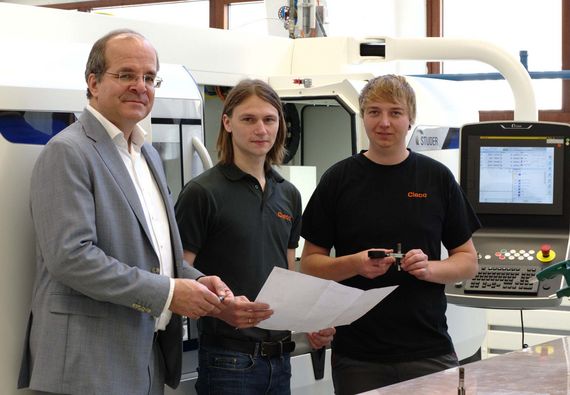
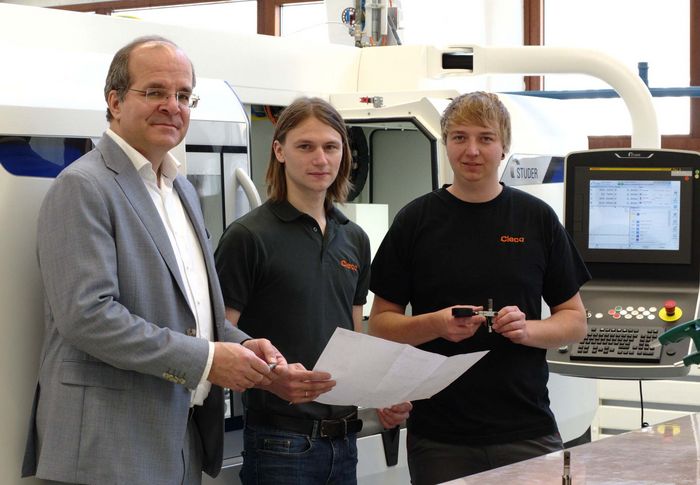
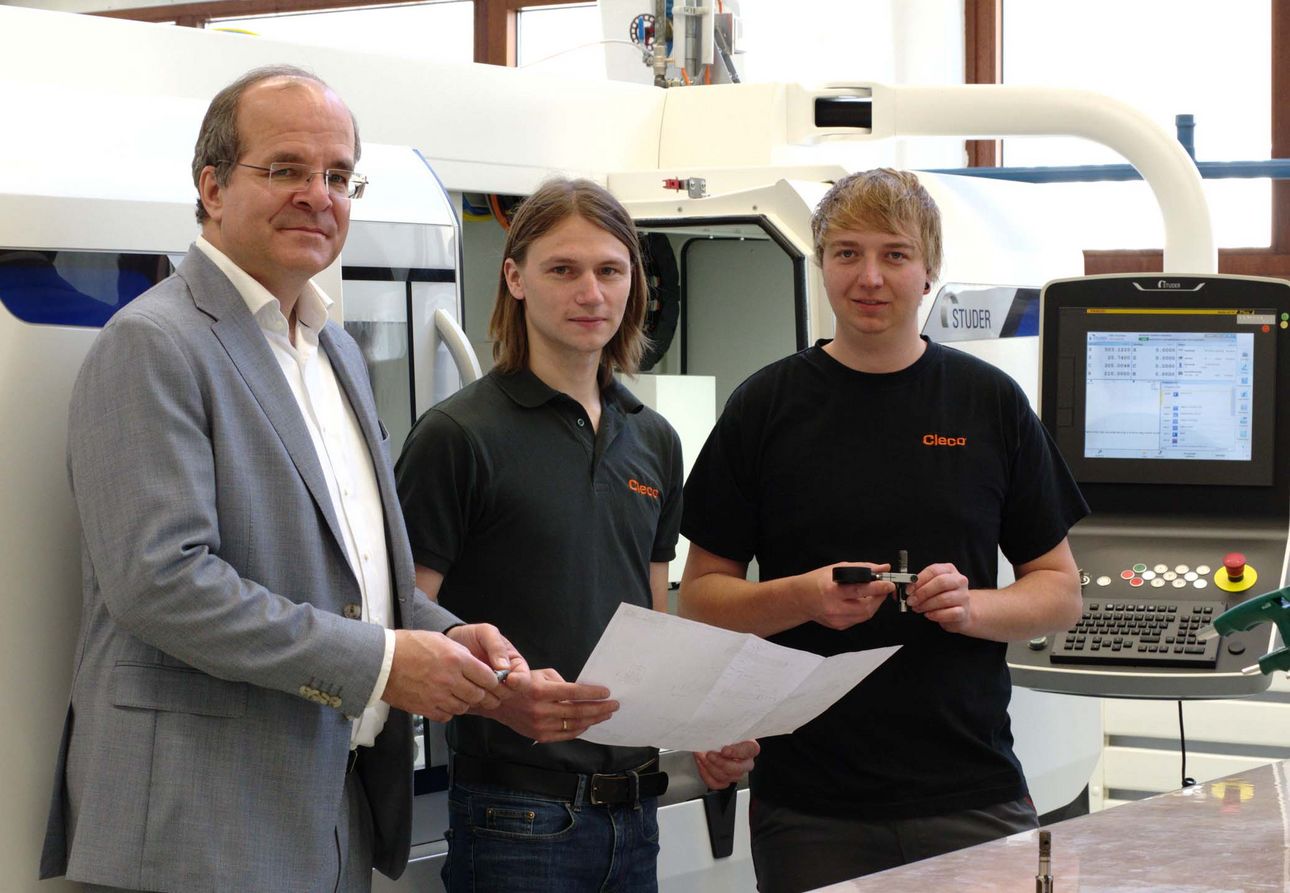
At the Apex Tool Group GmbH (ATG) in Westhausen the S31 cylindrical grinding machine from Studer is proving to be truly universal. From individual components to medium series, it grinds gear and control shafts for electric and pneumatic Cleco assembly tools cost-effectively and flexibly. Cleco is one of the six global ATG Power & Hand Tools brands.
The showroom of the Apex Tool Group – formerly Cooper Power Tools – in Westhausen boasts an impressive range of different assembly tools from the Cleco brand. These include pneumatic and electric screwdrivers, either corded or with rechargeable batteries, in a straight, angled and pistol design. In addition, there are also complete assembly stations with an integrated control system that displays screwing assembly instructions on a screen, providing the necessary parameters for screwing, and the monitoring and documentation of them. The screwdrivers are used, for example, in the assembly of combustion and electric engines, car bodies, transmissions and hydraulic units in vehicle manufacturing and in aviation, as well as for the automated mounting of wheels on vehicles. In order to meet current requirements for high process reliability and documented processes, the manufacturer equips the assembly tools with sensors for torque measurement as well as digital data transmission via cable or wireless (WLAN). As Niko Schindelarz, Supervisor Machining, explains, many manufacturers in the global industry consider Cleco assembly tools to be very high quality, robust, durable and reliable. A major contribution to this, says Niko Schindelarz, is certainly the extensive vertical integration at Apex. The company produces almost all the essential screwdriver components in-house in Westhausen. This applies in particular to motor and gear shafts, levers, valves, cams and housings.
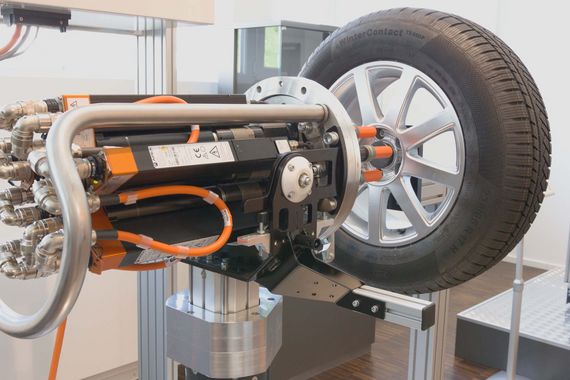
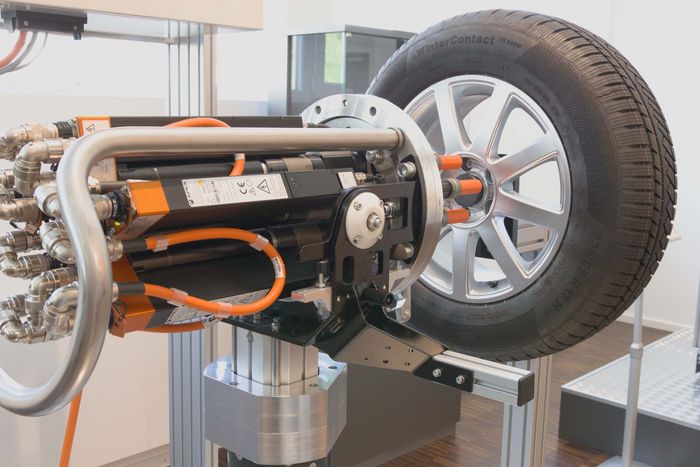
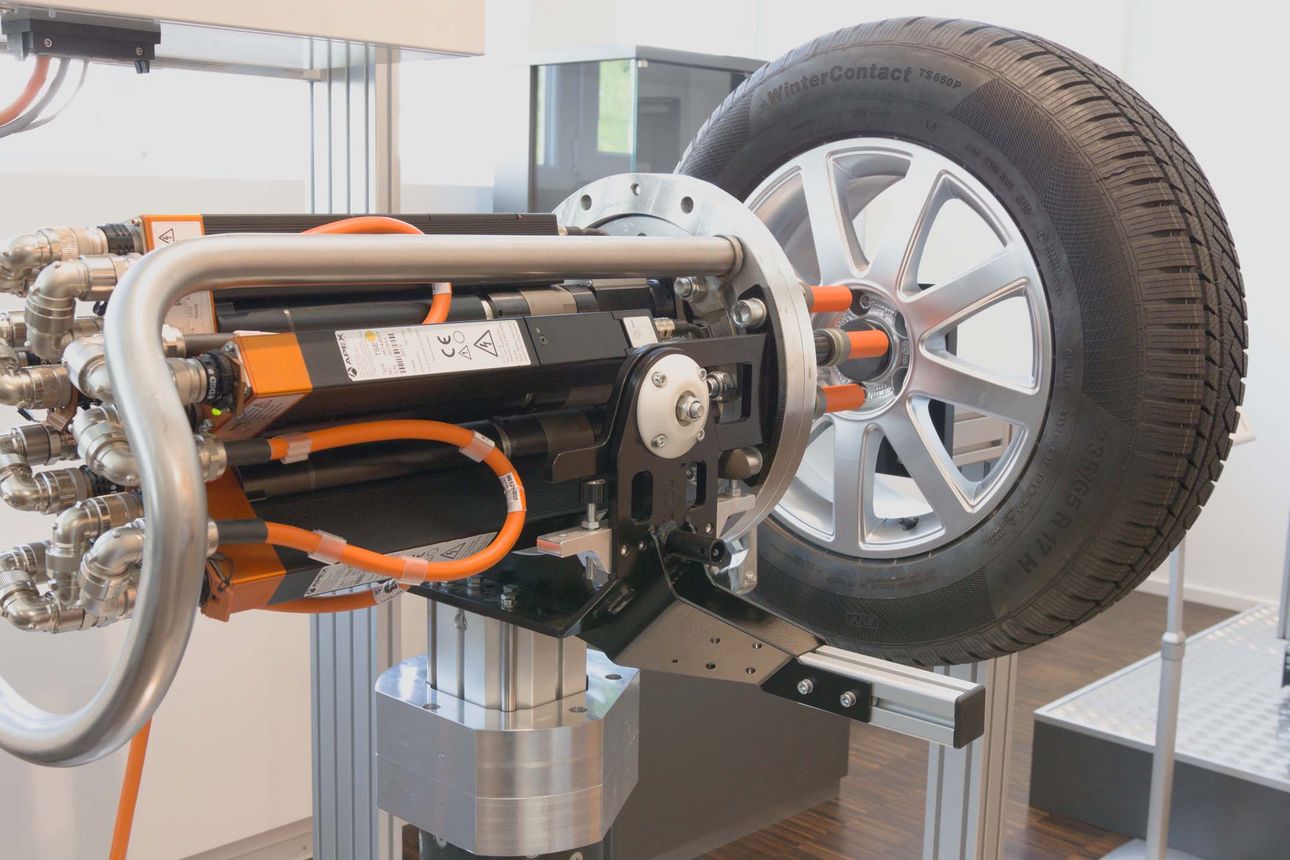
Flexible for variants and individual features
“Due to the large number of variants and the increasing demand for individual features we need to produce components in small series and even as individual pieces at very short notice”, explains Johannes Mäule, Production Engineer in Westhausen. As he goes on to say, this applies to all production steps and processes, from turning, drilling and milling through to grinding. “We need to grind our motor and gear shafts in particular to an accuracy of just a few µm. This is essential to ensure the extremely quiet running and long service life of our screwdrivers”, adds Niko Schindelarz. But this was still very complex until just a few months ago. Only one proven grinding machine, purchased back in the early 1980s, was available for cylindrical grinding. In order to grind the large number of 30 to 650 mm (1.18” to 25.6”) long shafts with diameters between 3 and 65 mm (0.118” and 2.56”), it was necessary to laboriously reset the machine manually, over and over again. This was contrary to a needs-based and flexible production process. “Most of all, it was increasingly uneconomical. Set-up times generally took twice or three times as long as the machining times”, explains Johannes Mäule. It was also difficult to achieve the required accuracies in diameters and cylindricity, especially with long, thin shafts, as Niko Schindelarz remarks. As he goes on to say, this was only possible for experienced experts who had been grinding for many years. “These experts are currently retiring or will do so in the coming years. This means their know-how will no longer be available to us. However, the training of young talent is now focused on different aspects than it was just a few years ago. Manual interventions on machines are more undesirable, and the emphasis is on programming and optimal parameterization of processes”, explains Niko Schindelarz.
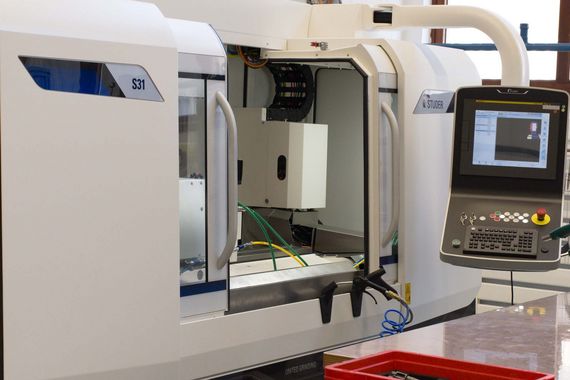
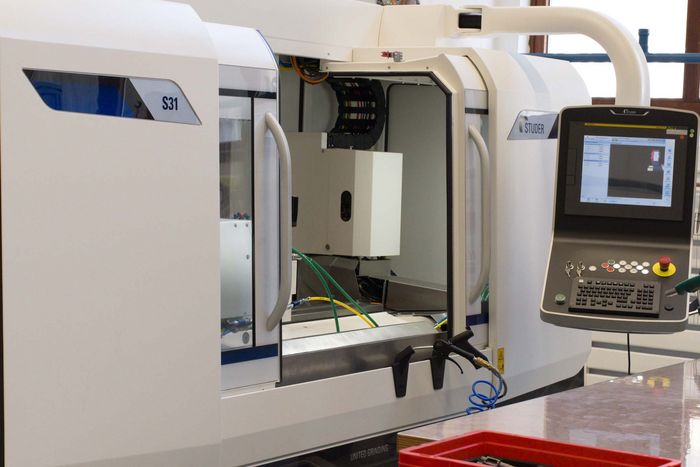
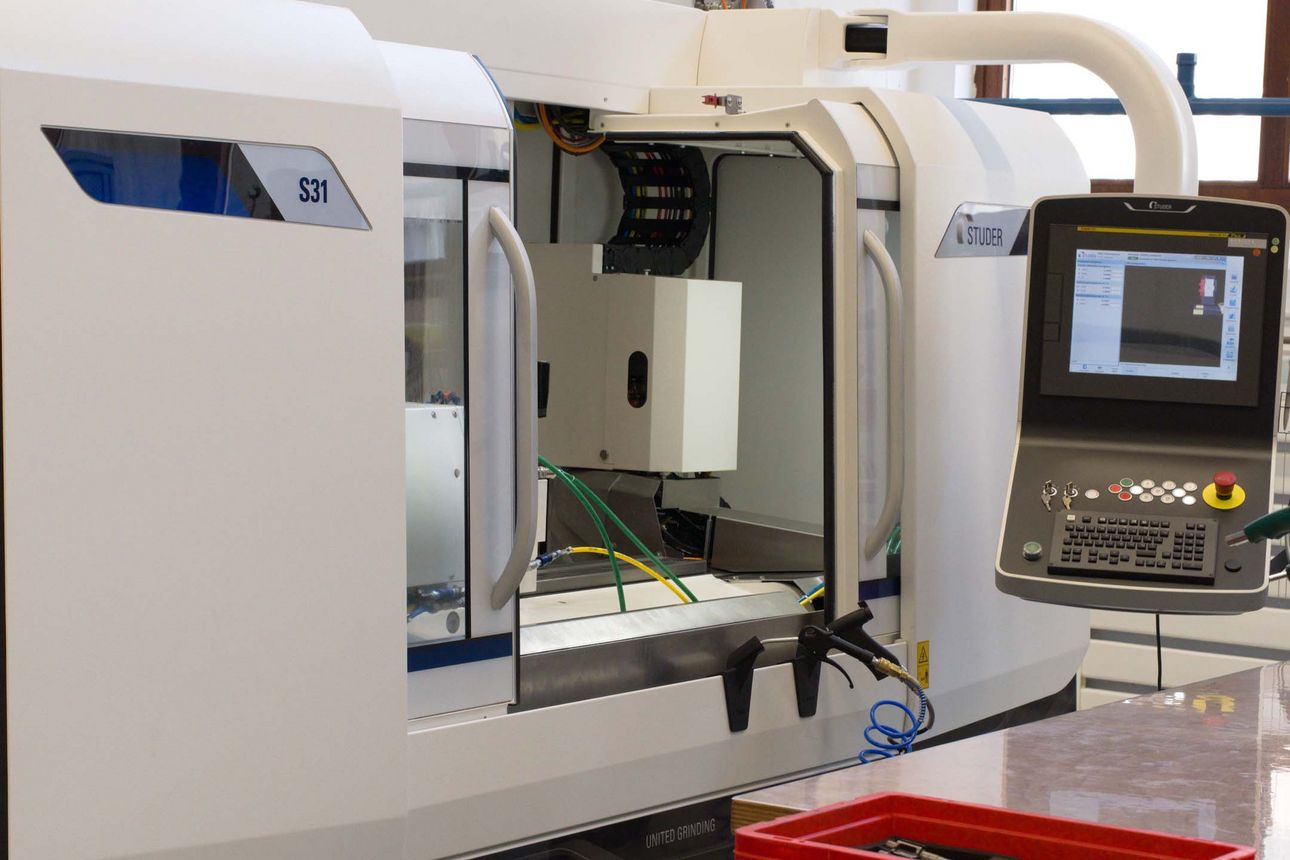
Generation transition
In this situation the managers responsible at Apex decided to invest in new technology for grinding – as with other machining processes. This was because the changing technical environment results in many additional demands on machines and production systems. In addition to high flexibility, these include for example, options for automated process monitoring and for transferring process and production data into a digital network – a smart factory. “Besides, we need the latest future-oriented technology in order to be an attractive employer and inspire much needed new talent to come and work in our company”, adds Niko Schindelarz. After comprehensive comparisons of different machine concepts, he and Johannes Mäule decided to invest in a Studer S31 universal cylindrical grinding machine.
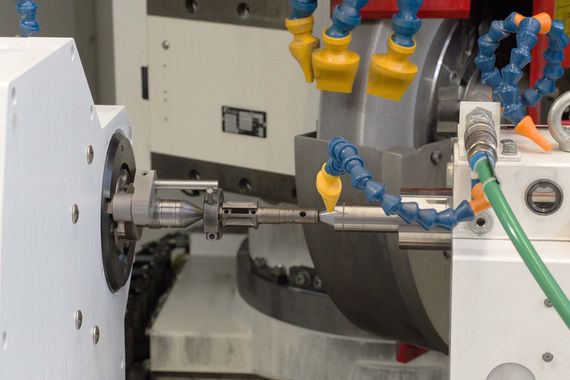
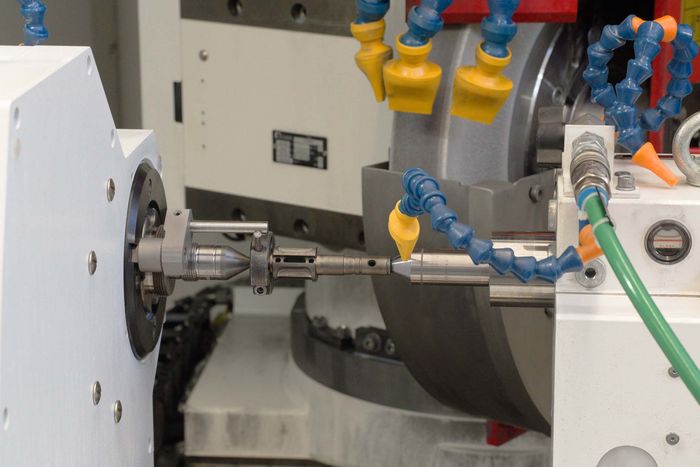
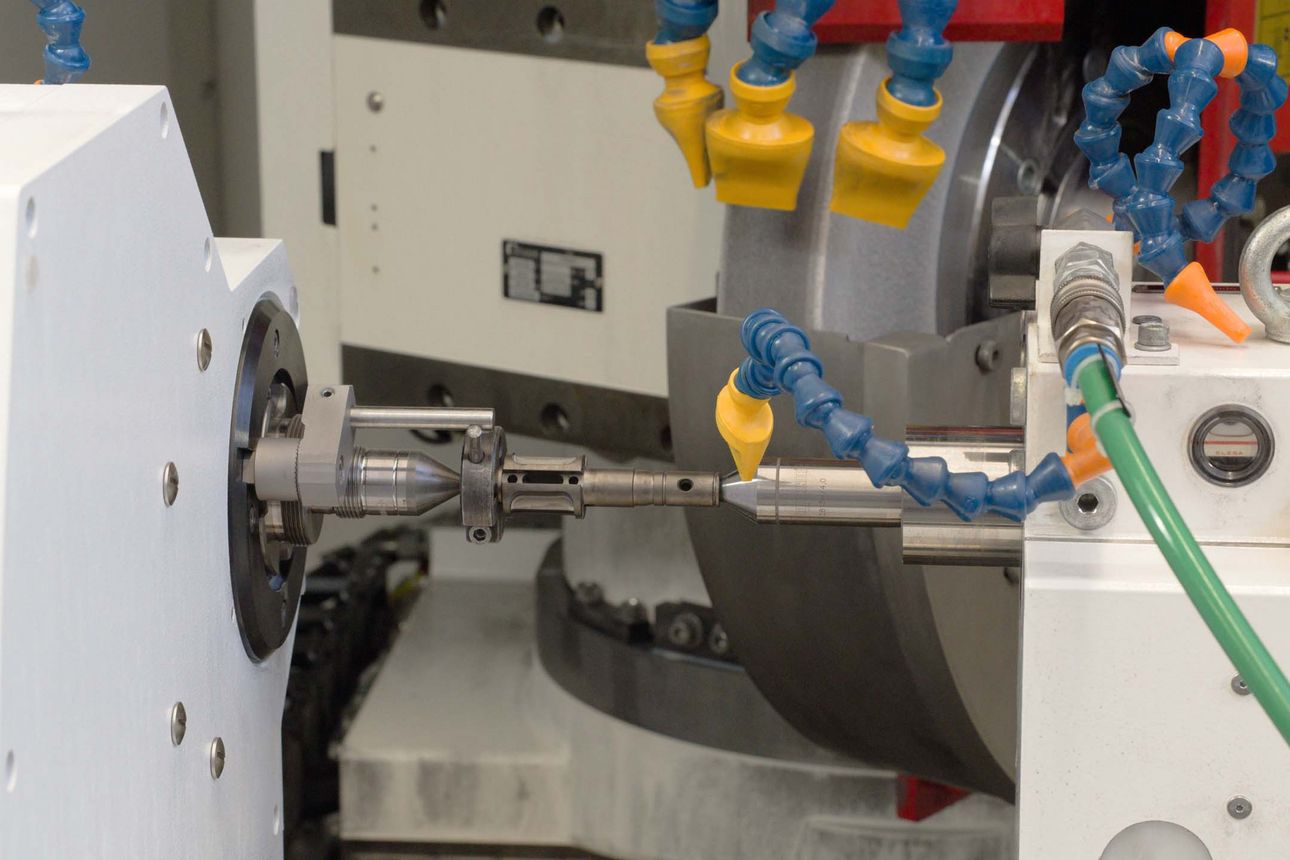
Highly flexible thanks to short set-up times
As Niko Schindelarz explains, first of all it was necessary to carefully prepare the requirement analysis, in order to obtain approval for the necessary budget from the commercial manager in the US group. However, we were able to clearly demonstrate on the basis of the operational benefits that the higher initial investment – in comparison to competitor products – will quickly prove profitable”, agree Johannes Mäule and Niko Schindelarz together. The production engineers in Westhausen are now able to grind the entire range of shafts on just one machine. The S31 cylindrical grinding machine is easily accessible for workpiece and grinding wheel set-up, despite the complete enclosure. Agreeing with the machine operators, Niko Schindelarz praises the excellent working ergonomics in particular. The production engineers in Westhausen benefit from much shorter set-up times in comparison to previous grinding machines. The special Quick-Set function only available on Studer grinding machines makes an essential contribution here. Cornelius Wecht, responsible for Studer sales in South Germany, reports: “Thanks to Quick-Set, the control stores the precise dimensions of all grinding wheels used on the grinding machine. This means you can also quickly set up frequently used and repeatedly dressed grinding wheels and use them again immediately. The control knows the precise dimensions after mounting of the grinding wheel and there is no requirement for re-measuring or even dressing on the machine.” The grinders in Westhausen consider the ability to dress profile grinding wheels directly on the cylindrical grinding machine as another advantage. The StuderDress software provides the corresponding cycles. With these cycles, only the required geometries are rotary dressed on the grinding wheel profile. As Niko Schindelarz confirms, this reduces set-up and non-productive times, on the one hand. On the other hand, it also ensures higher accuracies and better surfaces on the ground components.
Ideal for programming in the workshop
For Niko Schindelarz the control concept of the S31 cylindrical grinding machine also offers exceptional advantages. As he underlines, the user interface is very easy to understand. Graphics and dialogs clearly guide operators and programmers through the input fields. The control also has a database with all the necessary grinding parameters. “We call this StuderTechnology Integrated”, explains Cornelius Wecht. The machine operator selects the parameters which the software suggests, based on the workpiece geometries as well as the required accuracies and surface quality. These ensure that the cylindrical grinding machine always reliably achieves a good grinding result. The experienced grinder can adapt the suggested parameters at any time in order to further optimize the grinding process. “The S31 is therefore ideal for use in the workshop. Any of our skilled workers trained in machining can also work flexibly on the cylindrical grinding machine. They do not require any specialized grinding knowledge. This gives us maximum flexibility”, says Niko Schindelarz.
Universal thanks to B-axis
The S31 cylindrical grinding machine at the Apex Tool Group in Westhausen has a wheelhead with a B-axis. The wheelhead can swivel in steps of 1°. It comes with two spindle drives, one equipped with a grinding wheel for straight plunging and the other for angular plunging. This also contributes to short set-up times and maximum flexibility. “We can plunge-grind a workpiece straight and at an angle in one cycle without any set-up work. This means we can completely machine almost all components in a single clamping”, Niko Schindelarz explains the advantages of the B-axis and stresses: “With the equipment we have chosen, the S31 cylindrical grinding machine fully deserves the attribute ‘universal’. If there is one cylindrical grinding machine that deserves the name, then it’s the Studer S31.” After nearly five months, the S31 cylindrical grinding machine in Westhausen has proved that it completely fulfills the tool manufacturers’ extensive requirements.
Exemplary consultation and service
Johannes Mäule cites another important aspect when making investments in production systems: “For a special technology like grinding, production engineers usually only have general expertise. This applies particularly to innovative equipment features on machines and their specific advantages in relation to individual requirements.” As Niko Schindelarz adds, researching current grinding technology was not so easy initially. “But the Studer specialists advised us in great depth and, above all, openly and honestly. We were able to develop our optimal cylindrical grinding machine configuration together in just a few steps”, he continues. This built the necessary trust to confidently invest in the expensive S31 cylindrical grinding machine. “It was also important for us that service and technical advisers are regionally present and can advise and support us directly in production within a short period of time. This is essential to guarantee that our current and forward-looking investment in the S31 will prove profitable in the long run”, emphasizes Niko Schindelarz. As he concludes, Studer has completely fulfilled all relevant criteria with its specialists and the S31 universal cylindrical grinding machine.



